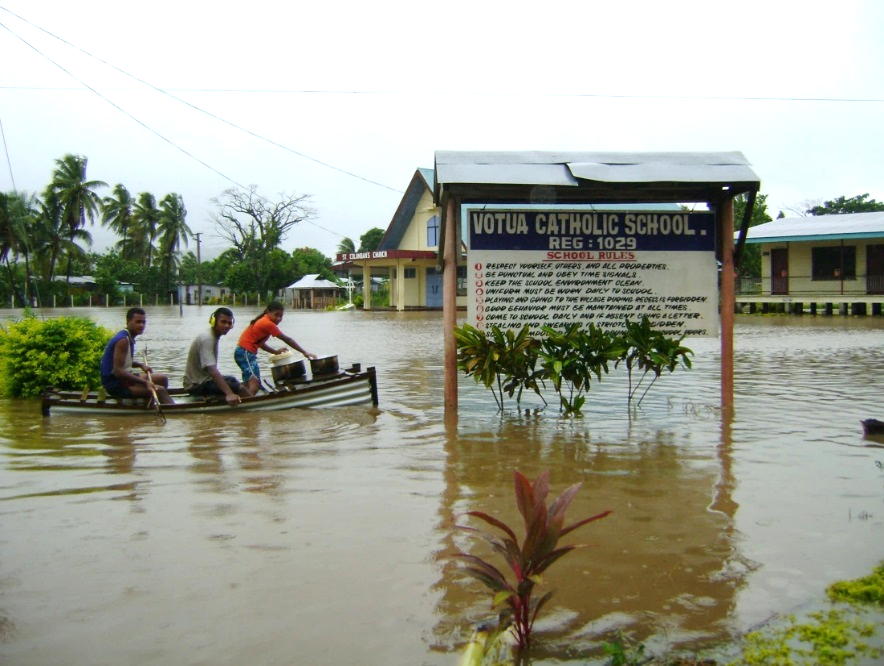
Photo: courtesy of Vanua Votua, Fiji.
According to the Internal Displacement Monitoring Centre, globally more than 24 million people were displaced annually between 2008 and 2018 due to climate-related hazards, within and across borders. Large-scale migration in response to sudden-onset climate-related disasters and slow-onset environmental degradation and sea-level rise will place increased pressure on livelihoods, public health systems, infrastructure, and social services.
This area of research requires attention to complex drivers as climate-induced reasons for migration interact with social, gendered, economic, and cultural contexts that produce diverse populations that either embark on uncertain migration trajectories or are unable to migrate.
Our consortium of WUN academics and WUN+ partners will contribute to a better understanding of when, where, how, and at what scale climate-induced migration takes place in different world regions. It will do so through a structured analysis of existing studies on this phenomenon, a systematic stock-taking of available research expertise across WUN members, and a global analysis of policy and legal frameworks pertaining to climate-induced migration.
The findings are expected to help inform policy measures in the field of international and internal migration and improve legal frameworks at the national and international level for the protection of so-called climate migrants.
The activities of the research consortium are supported by a series of virtual meetings, thematic sessions at major conferences, and a virtual writing workshop.
Research outputs envisaged are a guest-edited special issue in a high-impact international journal and an edited book collection with a reputable publishing house.
In the medium term, it is envisaged to develop a “WUN Research Network for Global Climate-Induced Migration” that will operate under a combination of external and internal funding arrangements.
Selected outcomes
Publications
- Neef, A., & Benge, L. (2022). Human mobility and climate change. In: K. Sims et al. (eds) Routledge Handbook of Global Development. Routledge, London & New York, pp. 382-391.
- Topical Collection (Special Issue) on “Climate Mobilities and Mobility Justice” in the journal Regional Environmental Change
- Handbook on “Climate Migration and Climate Mobility Justice”, published by De Gruyter
Policy input
- Neef, Intergovernmental Panel of Climate Change (IPCC), Invited Expert Reviewer for the Working Group II to the Sixth Assessment Report (commented on sections related to climate-related migration)
- Neef, New Zealand Institute of International Affairs, Invited Panelist, Climate Change Adaptation and Climate Mobility Justice in the Pacific: The Role of Aotearoa New Zealand, 14 July 2021
Workshops
- Thematic Session on “Mobility Justice, Climate Change and Planned Relocation” at the Biennial Conference of the Aotearoa New Zealand Development Studies Network in Palmerston North, New Zealand (December 2020)
- Thematic Session on “Climate Change and Human Mobility in the Anthropocene” at the German Sustainability Science Summit (July 2021)
- Thematic session on “Climate-Induced Migration” at the 34th International Geographical Congress, Istanbul (August 2021)
Other
- Prof Andreas Neef gave an interview on the work of the consortium for Channel News Asia in Singapore (5 November 2021)
- Prof Andreas Neef published an opinion piece for the New Zealand online news magazine “Newsroom” entitled “No Climate Justice without Mobility Justice” (18 November 2021)
External funding
- Award from the Royal Society of New Zealand, Catalyst Seeding Fund, New Zealand, International Climate Migration and Climatic Poverty Traps in the Asia-Pacific Region (INTERCEPT)
